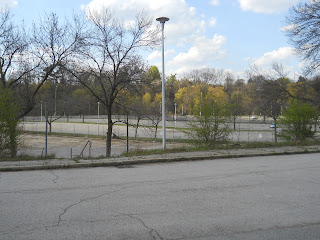McMaster University as an education institution is celebrating 125 years, though the campus in Hamilton is 81 years old.
McMaster's start in Hamilton, which began with the opening of the academic year 1931, is entwined with the origins of the Royal Botanical Gardens, and one of the prime movers in both these institutions was Hamilton's Thomas Baker McQuesten. In fact McMaster Chancellor Howard P. Whidden, who served in that capacity from 1923 to 1941, credited McQuesten with being "one of the great big factors which has made the whole thing possible."
It would be difficult to overstate the importance of the natural setting in the history of McMaster University in Hamilton. At the time, McQuesten, who would later become a Provincial cabinet minister with the Parks and Highways portfolios, was on the Hamilton Parks Board, and Chairman of the Works Committee: they offered McMaster 50 acres of property, and committed to "develop a park setting free of charge."
Indeed, "One of the deciding factors" for relocating McMaster from Toronto to Hamilton "was that Tom could promise acres of landscaped and wooded campus and ravine property. He planned that the university would be indistinguishable from the neighbouring Royal Botanical Garden parkland." (Anderson, 183)
How far we have moved from the original state of natural balance is up for discussion, but it is hard to argue that the original vision has not been drastically altered, perhaps most alarmingly in the West Campus. It is here that the RBG lost Coldspring Valley's wooded nature sanctuary, with it's several trails and spring fed streams and creeks, to McMaster in 1963. McMaster transformed the sanctuary into massive parking lots by diverting creeks, cutting the forest down, and filling in the wetlands. It was this year, 1963, that McMaster wrested 1,309 acres of land from the RBG for campus expansion, under President Thode.
McMaster's start in Hamilton, which began with the opening of the academic year 1931, is entwined with the origins of the Royal Botanical Gardens, and one of the prime movers in both these institutions was Hamilton's Thomas Baker McQuesten. In fact McMaster Chancellor Howard P. Whidden, who served in that capacity from 1923 to 1941, credited McQuesten with being "one of the great big factors which has made the whole thing possible."
"Do not forget that from the beginning I have been under indebtedness to you for constant support and inspiration in connection with the bringing of McMaster to Hamilton, and the making possible of its beautiful surroundings and setting." (Whidden to McQuesten, quoted in Tragedy and Triumph, Ruby and Thomas B. McQuesten, by Mary J. Anderson)
 |
| marsh just north of campus |
Indeed, "One of the deciding factors" for relocating McMaster from Toronto to Hamilton "was that Tom could promise acres of landscaped and wooded campus and ravine property. He planned that the university would be indistinguishable from the neighbouring Royal Botanical Garden parkland." (Anderson, 183)
How far we have moved from the original state of natural balance is up for discussion, but it is hard to argue that the original vision has not been drastically altered, perhaps most alarmingly in the West Campus. It is here that the RBG lost Coldspring Valley's wooded nature sanctuary, with it's several trails and spring fed streams and creeks, to McMaster in 1963. McMaster transformed the sanctuary into massive parking lots by diverting creeks, cutting the forest down, and filling in the wetlands. It was this year, 1963, that McMaster wrested 1,309 acres of land from the RBG for campus expansion, under President Thode.
 |
| Lot M Parking, the majority of the time empty |
In June of 1966 a letter to the Editor of the Dundas Star titled “Fear Intrusion” quoted a concerned citizen:
"Very few, if any, can express the views of the Royal Botanical Gardens, as can W.J. Lamoureux [RBG Conservationist], in his recent review of the situation of taking over of the property of Cootes Paradise for the expansion of McMaster University….few know of the many people that enjoy the untouched and original places that the Royal Botanical Gardens preserve and maintain and it would be to the discredit of Hamilton and district if this area were ‘whittled away a little at a time’ as expressed by Mr. Lamoureux.”
The parking lots are still in use today, though with enough excess capacity to prompt an attempt by Restore Cootes and others to make a case for restoration. Now the time is to "whittle away" the ecological damage of parking lots to restore the original vision of a campus working in synchronicity with the natural environment. This remains a work in progress, and a hopeful idea for McMaster's future. To realize it will take some work.
Comments